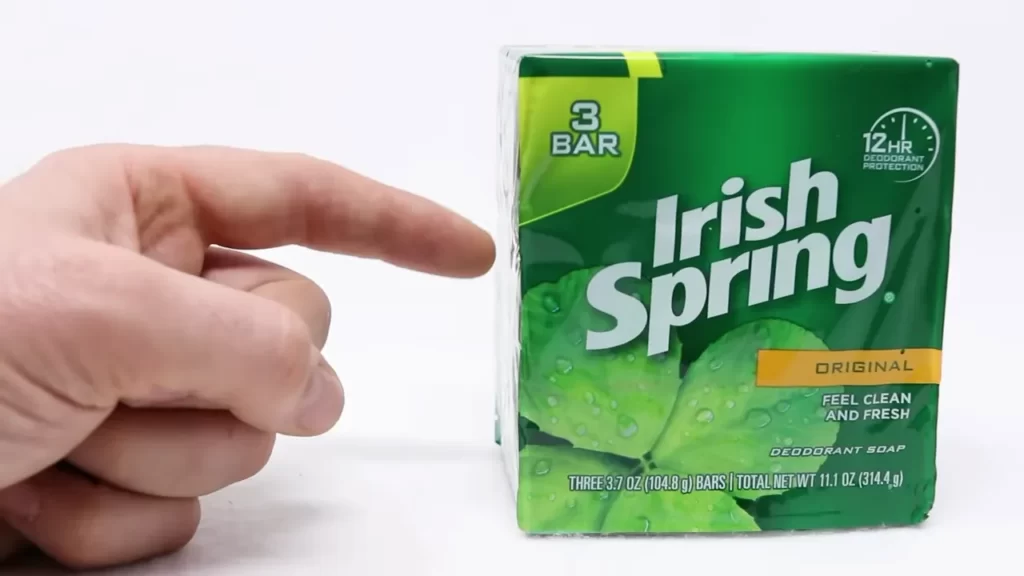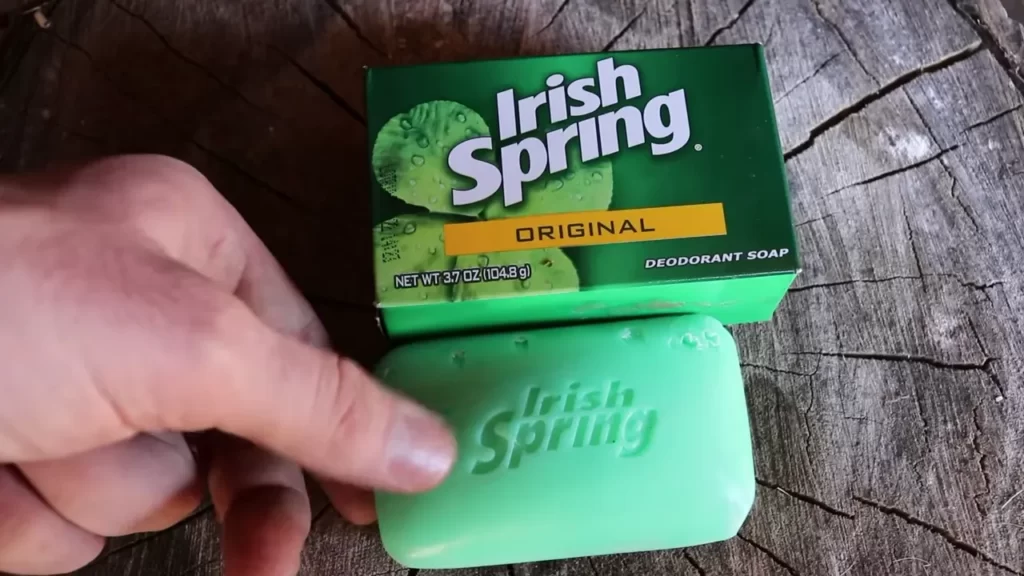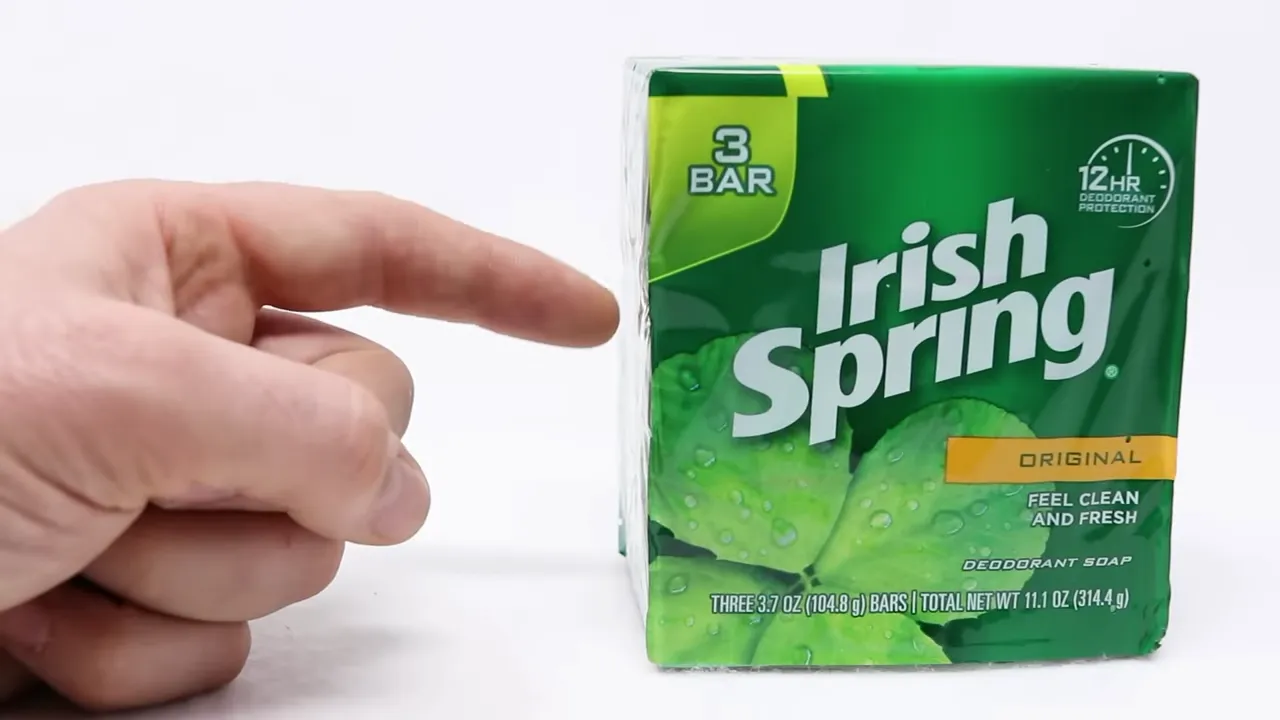Raccoons, with their mischievous eyes and dexterous paws, are notorious for rummaging through trash bins and causing havoc in gardens. These nocturnal mammals, often seen as pests, have adapted well to urban environments. Their presence often prompts homeowners to search for effective deterrents, leading to various home remedies surfacing in discussions.
Does Irish Spring Soap truly deter raccoons? In short, while some homeowners swear by this method, there isn’t substantial scientific evidence to confirm its effectiveness. Irish Spring Soap’s strong scent might temporarily confuse or repel raccoons, but it’s not a guaranteed long-term solution.
The appeal of Irish Spring Soap as a deterrent is understandable. Raccoons possess a heightened sense of smell, often guiding their nocturnal activities. However, relying solely on the soap might leave you disappointed. It’s essential to understand raccoon behavior and the factors that attract them to find the most effective deterrent strategies.
Raccoon Behavior Basics
Raccoons, known for their masked faces and bushy tails, are one of the most adaptable creatures, thriving in both natural and urban environments. To effectively deter these clever animals, it’s vital to first grasp their behavior and preferences.
Natural Habitats and Preferences
Raccoons originally inhabit forested areas near water sources. They prefer places that offer an abundance of food and shelter. Naturally, their diet consists of:
- Fruits
- Insects
- Small rodents
- Fish
- Plants
They’re nocturnal by nature, which means they’re most active during the night. When not foraging, raccoons take refuge in hollow trees, burrows, or dense vegetation, staying hidden from potential predators.

Typical Reasons for Venturing into Human Territories
As urban areas expand into natural habitats, raccoons find themselves drawn to human dwellings. The main reasons include:
- Easy Food Access: Urban areas, with garbage bins and leftovers, are a feast for raccoons.
- Shelter: Buildings, attics, and garages offer warm and safe hideouts.
- Lack of Predators: Urban settings often have fewer threats compared to the wild.
Attractants: Why Raccoons Visit
Before considering deterrents like Irish Spring Soap, understanding what lures these critters is essential.
Food Sources in Urban Settings
In towns and cities, raccoons change their diet. They become opportunistic feeders, attracted to:
- Garbage bins: Often left unsecured, they are an easy target.
- Pet food: Left outside, it’s a convenient meal.
- Bird feeders: The seeds and nuts are just as appealing to raccoons as they are to birds.
- Compost piles: Organic waste can be a source of insects and edible material.
Shelter Opportunities
Beyond food, raccoons search for places to nest, especially during breeding season. Places like:
- Attics: They’re warm, dry, and safe from predators.
- Under decks or sheds: These provide protection from the elements.
- Chimneys: Another warm spot to hide or even raise a family.
Curiosity and Adaptability
Raccoons are intelligent creatures. Their curiosity often leads them to explore new areas, especially if they sense the potential for food. Their adaptability allows them to thrive even in dense urban settings, learning to navigate the challenges of city life with ease.

Irish Spring Soap: The Claim
The idea that a common household soap can deter wildlife might seem odd, but it’s a belief held by many.
Origins of the Belief
The claim likely originated from the strong scent associated with Irish Spring Soap. Many animals, raccoons included, have a heightened sense of smell. The logic follows that a strong, unfamiliar scent could act as a deterrent.
How It’s Supposedly Used as a Deterrent
Many homeowners swear by this method:
- Grate the soap: By grating it, the scent disperses more effectively.
- Place it in areas of raccoon activity: Common spots include gardens, trash can areas, and entrances to potential shelters.
- Replace regularly: Rain or other elements might diminish the soap’s scent, so regular replacement ensures a consistent smell.
Evaluating the Effectiveness
The debate around the efficacy of Irish Spring Soap in repelling raccoons has been longstanding. It’s essential to approach the topic from multiple angles to get a well-rounded understanding.
Analysis of Ingredients Irish Spring Soap is formulated primarily with water, sodium laureth sulfate, and a blend of natural oils. One could argue that it’s the scent of these oils that might deter raccoons. Raccoons have a strong sense of smell, much stronger than humans. While they’re generally attracted to odors signaling potential food, certain strong fragrances can be off-putting to them.
Common Observations and Testimonies Multiple homeowners swear by the efficacy of Irish Spring Soap, claiming to have seen a notable decrease in raccoon visits after placing the soap around their property. However, as is the case with anecdotal evidence, these claims lack consistency. There are just as many individuals who report no change in raccoon behavior, despite using the soap.
Scientific Perspective While the belief in Irish Spring Soap’s efficacy is widespread, scientific studies specifically targeting this claim are sparse. In general, raccoons are known to be quite adaptable, meaning what deters one may not deter another. Moreover, factors like hunger can easily overpower a raccoon’s aversion to certain scents.
Alternatives for Raccoon Deterrence
While the use of Irish Spring Soap remains debated, there are several tried-and-true methods to deter raccoons effectively.
Secure Trash Bins One of the primary attractions for raccoons in urban settings is the availability of easy food. By simply securing your trash bins, you can significantly reduce the chance of a raccoon visit. This includes using bins with locking lids or using bungee cords to keep lids firmly in place.
Remove Potential Food Sources
- Ensure pet food is not left outside overnight.
- Regularly pick up fallen fruits or nuts from your yard.
- Use bird feeders that are raccoon-proof or bring them inside at night.
Utilize Natural Repellents Some gardeners swear by the use of natural repellents like hot pepper spray, ammonia, or a mixture of garlic and chili powder. These can be sprayed or sprinkled around areas you wish to keep raccoon-free.
Best Practices
It’s crucial to remember that while raccoons can be a nuisance, they’re also a vital part of our ecosystem.
Safe Methods for Deterring Raccoons Always choose deterrents that are non-lethal. Motion-activated sprinklers, radios, or lights can serve as effective deterrents by creating an environment that’s unsettling for raccoons without causing them harm.
The Importance of Humane Practices It’s essential to emphasize humane practices. Raccoons are intelligent and curious creatures. They aren’t invading our spaces out of malice but rather survival. Employing cruel methods not only harms them but can also upset the balance of your local ecosystem.
Coexisting with Wildlife Remember, we share our world with countless other species. By making minor adjustments to our lifestyles, like securing trash or removing attractants, we can live harmoniously with wildlife, including raccoons. They have as much right to inhabit this planet as we do. It’s our responsibility to ensure we do so without causing them undue harm.
Frequently Asked Questions
Why do raccoons visit homes?
Raccoons are opportunistic feeders searching for easily accessible food sources. Urban areas, with their abundance of trash bins and leftover food, are attractive to these adaptable creatures.
How effective are home remedies against raccoons?
Home remedies vary in effectiveness. While some might offer temporary relief, others might not deter raccoons at all. It’s essential to combine methods and keep testing.
Do raccoons hate strong scents?
Raccoons have a keen sense of smell, which they rely on for foraging. Strong scents can sometimes deter them, but it’s not a guaranteed method for all raccoons.
What are the common raccoon attractants?
Leftover food, easily accessible trash bins, pet food, and sheltering spots like attics or under decks are common attractions for raccoons.
Can raccoons be dangerous?
While raccoons are generally shy creatures, they can become aggressive if cornered or threatened. Additionally, they might carry diseases like rabies.
Conclusion
In the realm of home remedies and deterrents, Irish Spring Soap stands out as a frequently mentioned solution against raccoons. Its vibrant scent might act as a deterrent for some time, but one should always be prepared for it to lose its charm as raccoons adjust and adapt.
For those battling persistent raccoon invasions, it’s crucial to remember that these creatures are simply following their instincts. While it’s valid to want to protect your property, it’s equally essential to seek humane, effective solutions. Knowledge about raccoon behavior, combined with tried and tested deterrent strategies, is the best approach to ensure peaceful coexistence with these intriguing nocturnal visitors.
